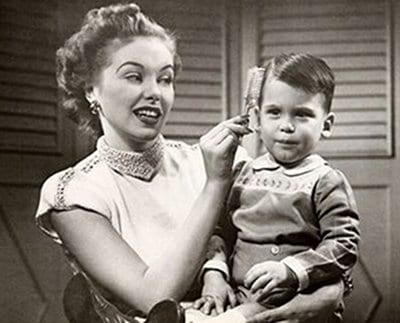Interesting article - does it matter that men are being are raised in homes without men, without fathers? Personally, I think it does matter - A LOT. Here are
some statistics in support of that assertion:
- 63% of youth suicides are from fatherless homes – 5 times the average (US Dept. Of Health/Census).
- 90% of all homeless and runaway children are from fatherless homes – 32 times the average.
- 85% of all children who show behavior disorders come from fatherless homes – 20 times the average. (Center for Disease Control)
- 80% of rapists with anger problems come from fatherless homes - 14 times the average. (Justice & Behavior, Vol 14, p. 403-26)
- 71% of all high school dropouts come from fatherless homes – 9 times the average. (National Principals Association Report
- 75% of all adolescent patients in chemical abuse centers come from fatherless homes – 10 times the average. (Rainbows for All God’s Children)
- 70% of youths in state-operated institutions come from fatherless homes – 9 times the average. (U.S. Dept. of Justice, Sept. 1988)
- 85% of all youths in prison come from fatherless homes – 20 times the average. (Fulton Co. Georgia, Texas Dept. of Correction)
These numbers were assembled in 2000, so it's probably even worse now. Keep this in mind as you read Brett's post.
by Brett on December 13, 2010

“We’re a generation of men raised by women. I’m wondering if another woman is really the answer we need.”
This comment, made by the Tyler Durden character in the movie Fight Club, is one of the most memorable lines of that film and has oft been repeated and discussed. It’s sticking power is surely due to the way it resonated with many men–how it so succinctly summed up their life’s experience. Products of divorced parents, single mothers, or fathers who spent more time at work than at home, these men lacked a vital example of manhood growing up. Oftentimes, not only was their dad not around, male mentors in other areas of their life were few and far between as well. They understand well Nathaniel Hawthorne’s lament in The Marble Faun:
“Between man and man there is always an insuperable gulf. They can never quite grasp each other’s hands; and therefore man never derives any intimate help, any heart sustenance, from his brother man, but from women-his mother, his sister, his wife.”
Without male mentors, many men of this generation have felt adrift, unsure of how to deal with an indescribable but acute lack in their lives.
How did we get to the point where it is possible, as Edward Abbey put it, “to proceed from infancy into senility without ever knowing manhood?”
There are three primary social institutions that have historically served to mold young boys into men: family, religion, and education. Yet the masculine influence of these institutions diminished over the last century. Let’s take a closer look at each.
Read the whole article.
Tags:
The Art of Manliness, A Generation of Men Raised by Women, fatherless homes, men, sons, children, fathers, fatherloss, culture, families, schools, church, religion, education
No comments:
Post a Comment